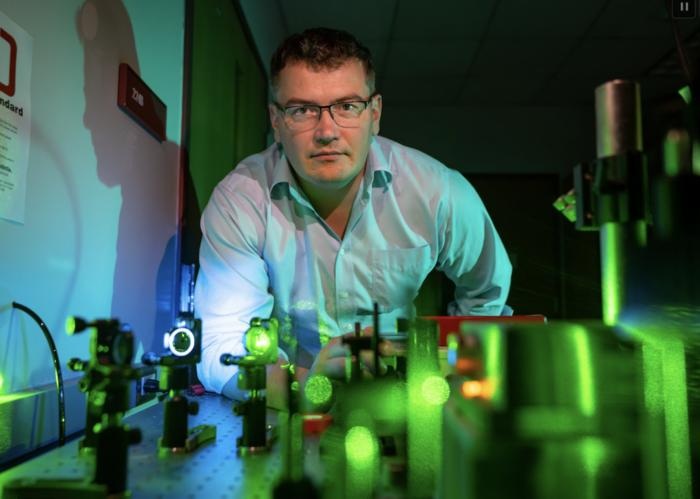Researchers Attach Coronavirus to Genetically Modified Measles Vaccine
|
By HospiMedica International staff writers Posted on 26 Mar 2020 |
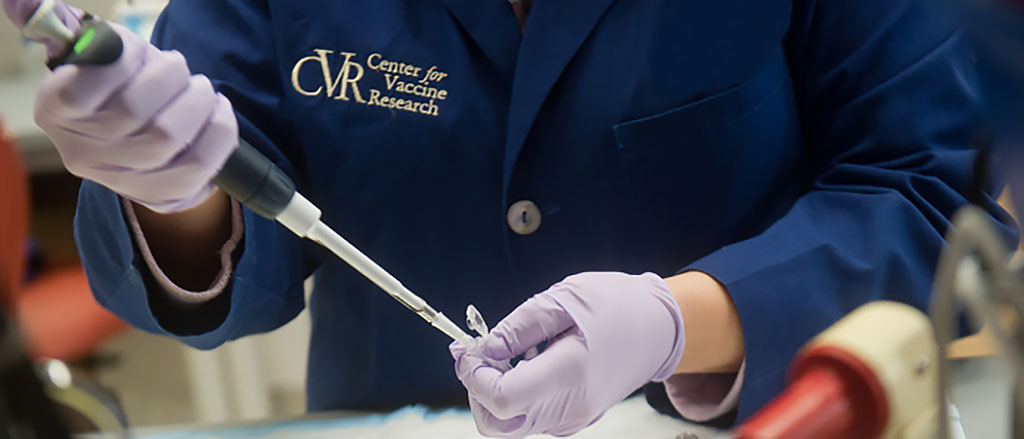
Image: Researchers attach Coronavirus to genetically modified measles vaccine (Photo courtesy of Center for Vaccine Research)
Researchers from the University of Pittsburgh’s Center for Vaccine Research (CVR; Pittsburgh, PA; USA) are developing a SARS-CoV-2 vaccine using a measles vector — meaning a measles vaccine engineered to express SARS-CoV-2 proteins on its surface — to generate immunity to the virus. CVR is a part of an international consortium led by Institut Pasteur (Paris, France) in collaboration with Themis Bioscience GmbH (Vienna, Austria) to develop a SARS CoV 2 vaccine and take it through phase I clinical trials in humans. The Coalition for Epidemic Preparedness Innovations (CEPI), an international, intergovernmental organization, is committing about USD 5 million to the consortium.
Measles is an attractive vector as the measles vaccine has proven safe and effective for billions of children over the past 40 years. Creating new measles vector vaccines is a well-established process. There are experimental measles vector vaccines for Chikungunya, dengue, Ebola, HIV-1, Lassa, MERS, RSV, SARS, West Nile and Zika, with several of them even advancing through clinical trials. Researchers from the three institutions have begun working on creating the vaccine, while CVR scientists are designing animal testing protocols that require special biocontainment measures for safe handling of potentially lethal, airborne pathogens such as SARS-CoV-2.
The researchers expect to have a candidate vaccine ready for animal testing in Paris and Pittsburgh by April, which will be complemented by the development of an aerosol model of COVID-19 disease at CVR. The vaccine will be administered to 60-80 human volunteers at the two sites in Europe by the end of the year. Meanwhile, Themis will begin generating a stockpile of the candidate vaccine in anticipation of a phase II trial starting early next year.
“There are virologists all around the world who have been trained for this moment,” said CVR director and Jonas Salk Chair for Vaccine Research Paul Duprex, Ph.D. “We have colleagues in many parts of the world who collaborate and work with us to share information and share knowledge because this is important.”
“Our versatile, plug-and-play manufacturing technology affords us the advantage of accelerating the discovery and development of a vaccine candidate against the highly infectious and pandemic coronavirus,” said Erich Tauber, M.D., CEO of Themis.
“We are delighted to continue our long-lasting collaboration with Themis and CEPI that has already delivered high potential vaccine candidates for Chikungunya, nearing phase 3, and Lassa fever in phase 1, both emerging infectious diseases representing a threat to global health,” said Stewart Cole, Ph.D., President of the Institut Pasteur.
Related Links:
Themis Bioscience GmbH
University of Pittsburgh’s Center for Vaccine Research
Institut Pasteur
Measles is an attractive vector as the measles vaccine has proven safe and effective for billions of children over the past 40 years. Creating new measles vector vaccines is a well-established process. There are experimental measles vector vaccines for Chikungunya, dengue, Ebola, HIV-1, Lassa, MERS, RSV, SARS, West Nile and Zika, with several of them even advancing through clinical trials. Researchers from the three institutions have begun working on creating the vaccine, while CVR scientists are designing animal testing protocols that require special biocontainment measures for safe handling of potentially lethal, airborne pathogens such as SARS-CoV-2.
The researchers expect to have a candidate vaccine ready for animal testing in Paris and Pittsburgh by April, which will be complemented by the development of an aerosol model of COVID-19 disease at CVR. The vaccine will be administered to 60-80 human volunteers at the two sites in Europe by the end of the year. Meanwhile, Themis will begin generating a stockpile of the candidate vaccine in anticipation of a phase II trial starting early next year.
“There are virologists all around the world who have been trained for this moment,” said CVR director and Jonas Salk Chair for Vaccine Research Paul Duprex, Ph.D. “We have colleagues in many parts of the world who collaborate and work with us to share information and share knowledge because this is important.”
“Our versatile, plug-and-play manufacturing technology affords us the advantage of accelerating the discovery and development of a vaccine candidate against the highly infectious and pandemic coronavirus,” said Erich Tauber, M.D., CEO of Themis.
“We are delighted to continue our long-lasting collaboration with Themis and CEPI that has already delivered high potential vaccine candidates for Chikungunya, nearing phase 3, and Lassa fever in phase 1, both emerging infectious diseases representing a threat to global health,” said Stewart Cole, Ph.D., President of the Institut Pasteur.
Related Links:
Themis Bioscience GmbH
University of Pittsburgh’s Center for Vaccine Research
Institut Pasteur
Latest COVID-19 News
- Low-Cost System Detects SARS-CoV-2 Virus in Hospital Air Using High-Tech Bubbles
- World's First Inhalable COVID-19 Vaccine Approved in China
- COVID-19 Vaccine Patch Fights SARS-CoV-2 Variants Better than Needles
- Blood Viscosity Testing Can Predict Risk of Death in Hospitalized COVID-19 Patients
- ‘Covid Computer’ Uses AI to Detect COVID-19 from Chest CT Scans
- MRI Lung-Imaging Technique Shows Cause of Long-COVID Symptoms
- Chest CT Scans of COVID-19 Patients Could Help Distinguish Between SARS-CoV-2 Variants
- Specialized MRI Detects Lung Abnormalities in Non-Hospitalized Long COVID Patients
- AI Algorithm Identifies Hospitalized Patients at Highest Risk of Dying From COVID-19
- Sweat Sensor Detects Key Biomarkers That Provide Early Warning of COVID-19 and Flu
- Study Assesses Impact of COVID-19 on Ventilation/Perfusion Scintigraphy
- CT Imaging Study Finds Vaccination Reduces Risk of COVID-19 Associated Pulmonary Embolism
- Third Day in Hospital a ‘Tipping Point’ in Severity of COVID-19 Pneumonia
- Longer Interval Between COVID-19 Vaccines Generates Up to Nine Times as Many Antibodies
- AI Model for Monitoring COVID-19 Predicts Mortality Within First 30 Days of Admission
- AI Predicts COVID Prognosis at Near-Expert Level Based Off CT Scans
Channels
Critical Care
view channel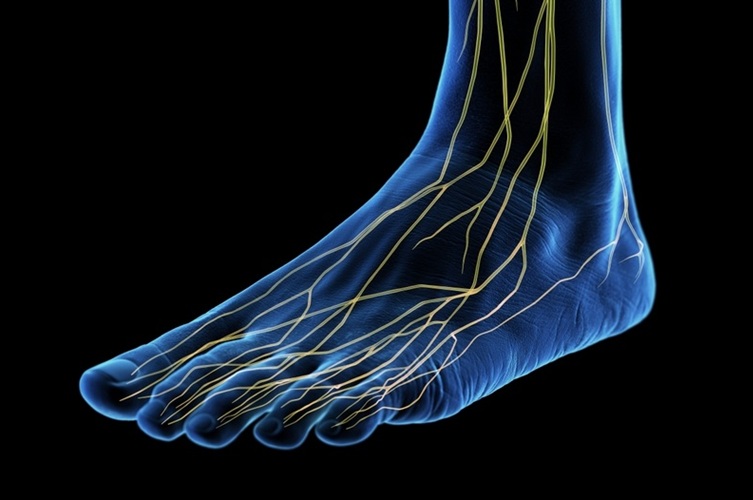
First-Ever Medical Technology Regrows Nerves and Stops Amputations in Diabetic Patients
Chronic wounds are among the most devastating and costly complications for diabetic and trauma patients, often leading to severe infections, tissue death, and amputations. Despite the global wound care... Read more
AI Tool Reduces Serious Complications and Readmissions After Colorectal Cancer Surgery
Readmissions and complications after colorectal cancer surgery remain a major challenge for both patients and healthcare systems. These setbacks increase suffering, prolong recovery, and result in high... Read moreSurgical Techniques
view channel
World's First Transcatheter Smart Implant Monitors and Treats Congestion in Heart Failure
Heart failure is one of the leading causes of hospitalization worldwide, with millions of patients requiring ongoing treatment to manage congestion. Current therapies often involve tracking remotely measured... Read more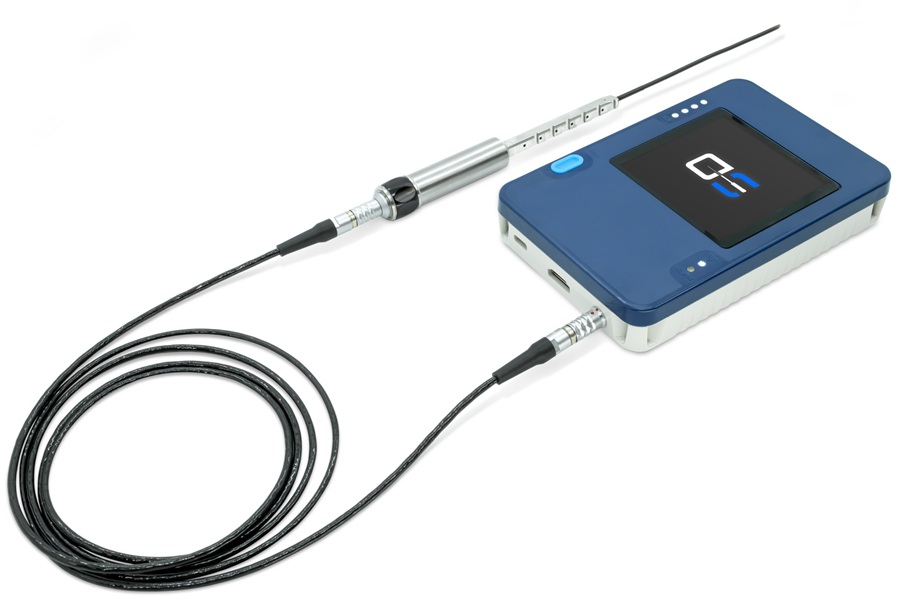
Hybrid Endoscope Marks Breakthrough in Surgical Visualization
For more than three decades, surgical endoscopy has depended on either rigid or flexible scopes, each with major drawbacks. Rigid scopes offer precision but limit maneuverability, while flexible scopes... Read more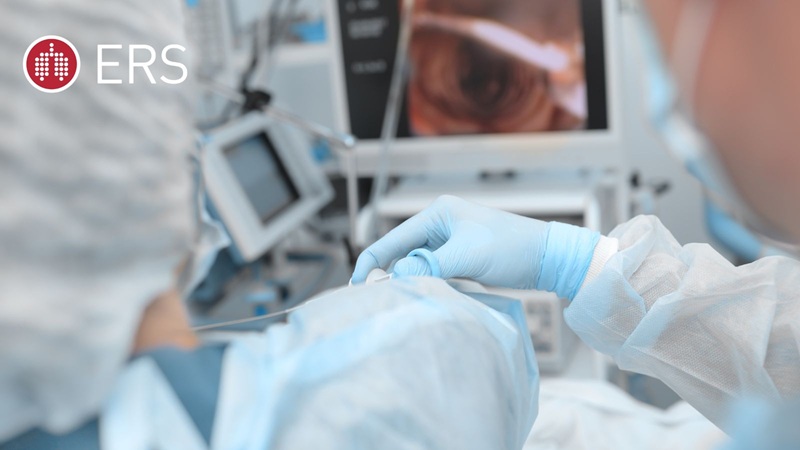
Robot-Assisted Bronchoscope Diagnoses Tiniest and Hardest to Reach Lung Tumors
Lung cancer is one of the deadliest cancers in Europe, killing around a quarter of a million people annually. Survival rates are much higher when tumors are diagnosed at an early stage, but the tiniest... Read more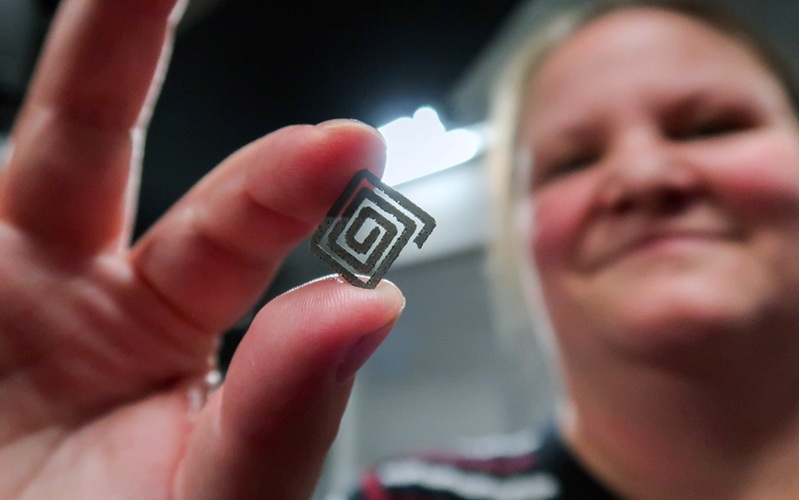
Diamond-Titanium Device Paves Way for Smart Implants that Warn of Disease Progression
Medical implants such as stents, prosthetics, and drug-release systems often rely on batteries that take up space, wear out, and eventually require replacement surgery. These limitations increase risks... Read morePatient Care
view channel
Revolutionary Automatic IV-Line Flushing Device to Enhance Infusion Care
More than 80% of in-hospital patients receive intravenous (IV) therapy. Every dose of IV medicine delivered in a small volume (<250 mL) infusion bag should be followed by subsequent flushing to ensure... Read more
VR Training Tool Combats Contamination of Portable Medical Equipment
Healthcare-associated infections (HAIs) impact one in every 31 patients, cause nearly 100,000 deaths each year, and cost USD 28.4 billion in direct medical expenses. Notably, up to 75% of these infections... Read more
Portable Biosensor Platform to Reduce Hospital-Acquired Infections
Approximately 4 million patients in the European Union acquire healthcare-associated infections (HAIs) or nosocomial infections each year, with around 37,000 deaths directly resulting from these infections,... Read moreFirst-Of-Its-Kind Portable Germicidal Light Technology Disinfects High-Touch Clinical Surfaces in Seconds
Reducing healthcare-acquired infections (HAIs) remains a pressing issue within global healthcare systems. In the United States alone, 1.7 million patients contract HAIs annually, leading to approximately... Read moreHealth IT
view channel
Printable Molecule-Selective Nanoparticles Enable Mass Production of Wearable Biosensors
The future of medicine is likely to focus on the personalization of healthcare—understanding exactly what an individual requires and delivering the appropriate combination of nutrients, metabolites, and... Read moreBusiness
view channel
Philips and Masimo Partner to Advance Patient Monitoring Measurement Technologies
Royal Philips (Amsterdam, Netherlands) and Masimo (Irvine, California, USA) have renewed their multi-year strategic collaboration, combining Philips’ expertise in patient monitoring with Masimo’s noninvasive... Read more
B. Braun Acquires Digital Microsurgery Company True Digital Surgery
The high-end microsurgery market in neurosurgery, spine, and ENT is undergoing a significant transformation. Traditional analog microscopes are giving way to digital exoscopes, which provide improved visualization,... Read more
CMEF 2025 to Promote Holistic and High-Quality Development of Medical and Health Industry
The 92nd China International Medical Equipment Fair (CMEF 2025) Autumn Exhibition is scheduled to be held from September 26 to 29 at the China Import and Export Fair Complex (Canton Fair Complex) in Guangzhou.... Read more












